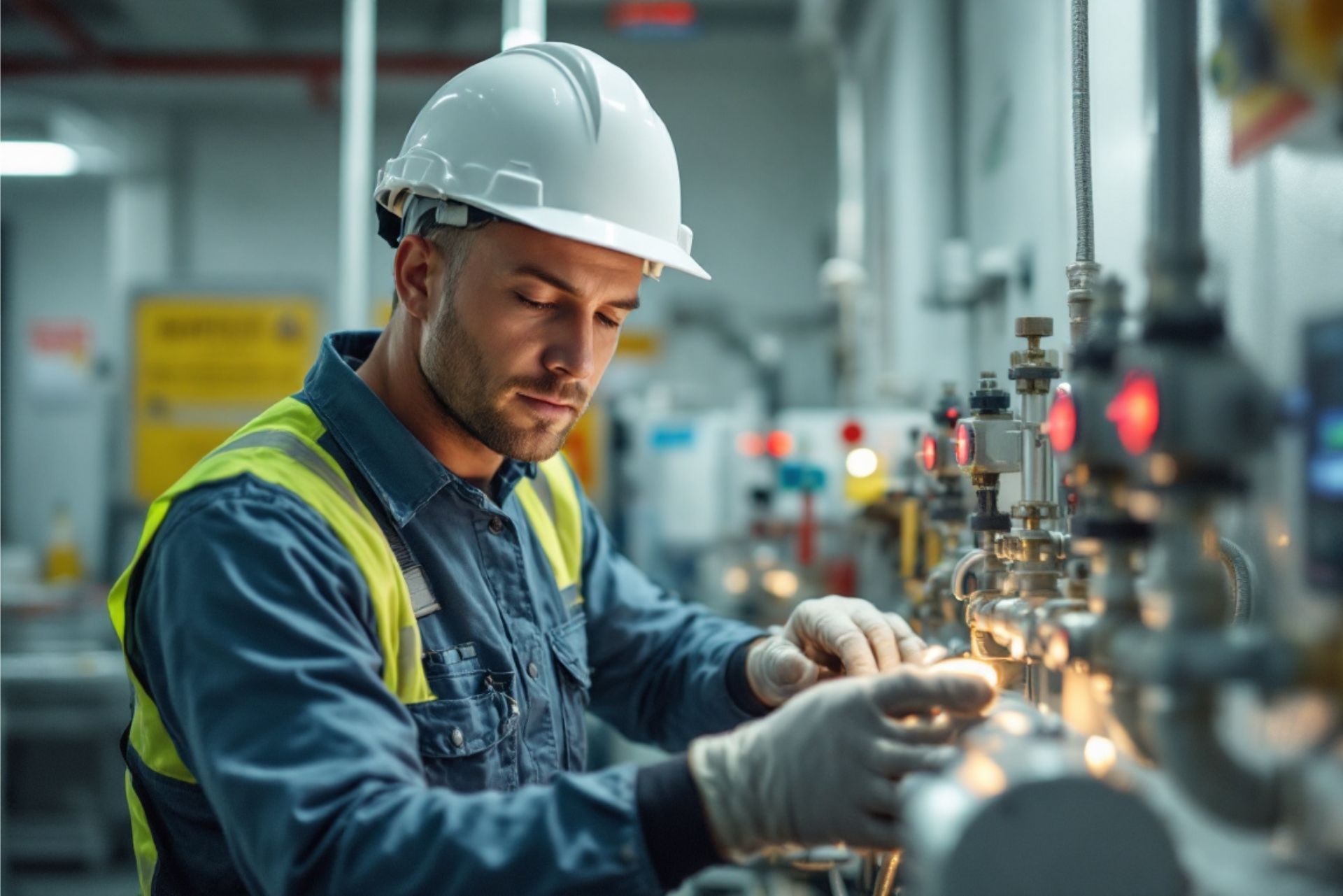Index
Understanding Medical Gas Plumbing
The Importance of Insurance for Medical Gas Plumbers
Choosing the Right Insurance Policy
The Cost of Medical Gas Plumber Insurance
Claims Process for Medical Gas Plumber Insurance
Legal Considerations for Medical Gas Plumbers
Contact Us
Phone
Location
Simi Valley, CA 93065
The Woodlands, TX 77382
Katy, TX 77494
In the specialized field of medical gas plumbing, professionals are tasked with the critical responsibility of installing, maintaining, and repairing gas systems that supply medical facilities with essential gases like oxygen, nitrous oxide, and medical air. Given the high stakes involved, having the right insurance coverage is paramount. This article delves into the specifics of medical gas plumber insurance, exploring its importance, types of coverage available, and tips for choosing the right policy.
Understanding Medical Gas Plumbing
Medical gas plumbing is a niche within the plumbing industry focused on the installation and maintenance of gas systems in healthcare settings. These systems are vital for patient care, providing the necessary gases for surgeries, anesthesia, and respiratory support. The complexity and regulatory requirements of these systems demand a high level of expertise from plumbers. Medical gas systems typically include oxygen, nitrous oxide, medical air, and vacuum systems, each requiring specific handling and installation techniques to ensure safety and efficacy.
In addition to the technical skills required, medical gas plumbers must also possess a deep understanding of the healthcare environment. They often work closely with medical staff to ensure that gas systems are integrated seamlessly into the overall infrastructure of the facility. This collaboration is crucial, as it helps to identify the unique needs of different departments, such as operating rooms, intensive care units, and emergency departments, where gas requirements may vary significantly.
The Role of Medical Gas Plumbers
Medical gas plumbers are responsible for ensuring that gas delivery systems are safe, reliable, and compliant with health regulations. Their work includes installing pipelines, valves, and outlets, as well as conducting regular inspections and maintenance. These professionals must be well-versed in the specific codes and standards that govern medical gas systems, such as those set by the National Fire Protection Association (NFPA) and the American National Standards Institute (ANSI). Furthermore, they often participate in training sessions and continuing education to stay updated on the latest technologies and practices in the field.
Beyond installation and maintenance, medical gas plumbers also play a crucial role in emergency response scenarios. In the event of a gas leak or system failure, they must act quickly to mitigate risks and restore functionality. Their expertise is essential in troubleshooting issues, which can often arise unexpectedly in high-stakes environments. This aspect of their job requires not only technical skills but also the ability to remain calm under pressure and communicate effectively with healthcare professionals during critical situations.
Risks Involved in Medical Gas Plumbing
Given the critical nature of their work, medical gas plumbers face unique risks. A malfunction or improper installation can lead to severe consequences, including patient harm, property damage, or even legal liabilities. Additionally, the work environment in healthcare facilities can be unpredictable, with potential exposure to hazardous materials and high-pressure systems. Safety protocols are paramount, and plumbers must adhere to strict guidelines to minimize risks, including wearing personal protective equipment (PPE) and following lockout/tagout procedures during maintenance activities.
Moreover, the psychological pressure associated with working in a healthcare setting cannot be overlooked. Medical gas plumbers often operate in high-stress situations where the stakes are incredibly high. The knowledge that their work directly impacts patient safety can weigh heavily on their shoulders. As such, many professionals in this field emphasize the importance of mental health and stress management techniques to maintain focus and ensure the highest standards of safety and quality in their work.

The Importance of Insurance for Medical Gas Plumbers
Insurance serves as a safety net for medical gas plumbers, protecting them from financial losses due to unforeseen incidents. Without adequate coverage, a single mistake could result in significant costs, including legal fees, repair expenses, and compensation claims. Therefore, understanding the types of insurance available is crucial for anyone in this field. The risks associated with medical gas plumbing are not just financial; they can also impact the safety and well-being of patients who rely on these systems for their health. This makes it imperative for plumbers to not only invest in insurance but also to stay informed about best practices and safety protocols.
Types of Insurance Coverage
Medical gas plumbers typically require several types of insurance to ensure comprehensive protection. The most common types include:
- General Liability Insurance: This coverage protects against claims of bodily injury or property damage that may occur during the course of work. It is essential for any contractor, including medical gas plumbers.
- Professional Liability Insurance: Also known as errors and omissions insurance, this policy covers claims related to professional negligence or failure to deliver services as promised. For medical gas plumbers, this is particularly important given the potential consequences of mistakes.
- Workers' Compensation Insurance: This insurance is crucial for protecting employees in the event of work-related injuries or illnesses. It covers medical expenses and lost wages, ensuring that workers are taken care of.
- Commercial Auto Insurance: If a plumber uses a vehicle for work purposes, this insurance covers damages and liabilities related to vehicle accidents. It is vital for those who transport tools and equipment to job sites.
Additional Coverage Options
In addition to the standard types of insurance, medical gas plumbers may want to consider additional coverage options to enhance their protection:
- Equipment Insurance: This coverage protects tools and equipment from theft, loss, or damage, which can be costly to replace. Given the specialized nature of medical gas plumbing tools, having this insurance can save significant expenses in the event of an unforeseen incident.
- Business Interruption Insurance: This policy helps cover lost income if a business is unable to operate due to unforeseen circumstances, such as a natural disaster or significant equipment failure. For medical gas plumbers, even a short downtime can lead to lost contracts and revenue.
- Cyber Liability Insurance: As technology becomes more integrated into plumbing systems, protecting against data breaches and cyber threats is increasingly important. With the rise of smart medical devices, plumbers must be aware of the potential risks associated with digital systems and ensure they are adequately covered.
Moreover, as regulations surrounding medical gas systems become more stringent, having the right insurance can also provide peace of mind. Compliance with local and national codes not only protects the plumber but also ensures that patients receive safe and reliable services. Insurance can often help navigate the complexities of these regulations, offering guidance on maintaining compliance while also protecting the business from potential liabilities. Additionally, staying updated on industry trends and emerging technologies can further enhance a plumber's ability to mitigate risks, making insurance an essential part of a proactive business strategy.
Choosing the Right Insurance Policy
Selecting the appropriate insurance policy is a critical step for medical gas plumbers. Factors such as coverage limits, premiums, and exclusions should be carefully considered to ensure adequate protection.
Assessing Coverage Needs
Before purchasing insurance, it's essential to assess specific coverage needs based on the scope of work and potential risks. This involves evaluating the types of projects undertaken, the size of the business, and the number of employees. Consulting with an insurance professional can provide valuable insights into the necessary coverage levels. Additionally, it’s wise to consider the geographical areas in which you operate, as different regions may have varying regulations and risks associated with medical gas installations. For instance, urban areas may have more stringent safety codes, while rural locations might present unique challenges related to access and logistics.
Comparing Insurance Providers
Not all insurance providers offer the same coverage options or customer service. It’s important to compare multiple providers to find the best fit. Look for insurers that specialize in contractor insurance, as they will have a better understanding of the unique risks faced by medical gas plumbers. Reading reviews and seeking recommendations can also help in making an informed decision. Furthermore, consider the financial stability of the insurance companies you are evaluating. A provider with a strong financial rating can offer peace of mind, knowing they will be able to fulfill claims when needed. Engaging in discussions with other professionals in the field can also reveal insights into which providers have a reputation for reliability and responsiveness in times of need.
Understanding Policy Exclusions
Every insurance policy has exclusions—situations or conditions that are not covered. Understanding these exclusions is crucial to avoid surprises when filing a claim. Common exclusions may include work outside of the specified scope, acts of God, or negligence. Review the policy details thoroughly and ask questions to clarify any uncertainties. Additionally, it may be beneficial to inquire about optional endorsements or riders that can be added to your policy for enhanced coverage. For example, some insurers offer specialized endorsements for tools and equipment, which can be invaluable for medical gas plumbers who rely heavily on their gear to complete projects safely and efficiently. Being proactive in understanding these aspects can significantly mitigate risks and ensure that you are fully protected in your line of work.
The Cost of Medical Gas Plumber Insurance
The cost of insurance can vary significantly based on several factors, including the size of the business, the coverage types selected, and the claims history. Understanding these factors can help medical gas plumbers budget for insurance expenses effectively.
Factors Influencing Insurance Premiums
Several key factors influence the premiums for medical gas plumber insurance:
- Business Size: Larger businesses with more employees or higher revenue may face higher premiums due to increased risk exposure.
- Claims History: A history of frequent claims can lead to higher premiums, as insurers view the business as a higher risk.
- Coverage Limits: Higher coverage limits typically result in higher premiums. It's essential to strike a balance between adequate coverage and affordability.
Average Costs of Insurance
The average cost of insurance for medical gas plumbers can vary widely. General liability insurance may range from $400 to $1,500 annually, while professional liability insurance can cost between $500 and $2,000 per year. Workers' compensation insurance costs depend on the state and the number of employees but typically ranges from $1,000 to $3,000 annually.
In addition to these basic insurance types, medical gas plumbers may also consider specialized coverage options such as equipment insurance, which protects against loss or damage to essential tools and machinery. This type of insurance can be particularly valuable given the high cost of specialized equipment used in the installation and maintenance of medical gas systems. Furthermore, the location of the business can also play a significant role in determining insurance costs, as regions with higher rates of accidents or claims may lead to increased premiums.
Another important aspect to consider is the potential for discounts that may be available to medical gas plumbers. Many insurance providers offer incentives for businesses that implement safety training programs, maintain a clean claims history, or belong to professional organizations. These discounts can significantly reduce overall insurance costs, making it crucial for plumbers to actively seek out and take advantage of such opportunities. By investing in safety measures and maintaining a strong professional reputation, medical gas plumbers can not only protect their business but also manage their insurance expenses more effectively.

Claims Process for Medical Gas Plumber Insurance
Understanding the claims process is vital for medical gas plumbers to ensure they can navigate it smoothly in the event of an incident. Each insurance provider may have a different process, but some general steps are commonly followed.
Reporting an Incident
When an incident occurs, the first step is to report it to the insurance provider as soon as possible. This typically involves filling out a claim form and providing details about the incident, including the date, location, and any involved parties. Documentation, such as photographs and witness statements, can support the claim.
Investigation and Resolution
After a claim is submitted, the insurance company will investigate the incident. This may involve reviewing documentation, interviewing witnesses, and assessing damages. The insurer will then determine whether the claim is valid and what compensation, if any, is warranted. This process can take time, so patience is essential.
Appealing a Denied Claim
If a claim is denied, the policyholder has the right to appeal the decision. This process usually involves providing additional evidence or clarification to support the claim. Understanding the reasons for denial can help in crafting a compelling appeal.
Legal Considerations for Medical Gas Plumbers
Medical gas plumbers must navigate various legal considerations related to their work and insurance. Compliance with regulations and understanding liability issues are crucial for protecting both the business and clients.
Regulatory Compliance
Medical gas plumbing is governed by strict regulations to ensure safety and efficacy. Compliance with local, state, and federal regulations is mandatory. Failure to comply can result in fines, legal action, or loss of licensure. Staying informed about changes in regulations is essential for maintaining compliance.
Liability Issues
Liability is a significant concern for medical gas plumbers. If a system fails or causes harm, the plumber may be held liable for damages. This underscores the importance of having adequate insurance coverage to mitigate potential financial repercussions. Understanding the legal implications of contracts and agreements with clients can also help reduce liability risks.
Contractual Agreements
Having clear contractual agreements with clients is vital in the medical gas plumbing industry. Contracts should outline the scope of work, payment terms, and responsibilities of both parties. Including clauses related to liability and insurance can provide additional protection and clarify expectations.
Future Trends in Medical Gas Plumbing Insurance
The landscape of medical gas plumbing insurance is continually evolving, influenced by advancements in technology, regulatory changes, and emerging risks. Staying informed about these trends can help plumbers adapt and ensure they have the right coverage.
Technological Advancements
As technology becomes more integrated into medical gas systems, insurance providers may adjust their policies to account for new risks. For example, the rise of smart medical gas systems may introduce cybersecurity concerns, leading to increased demand for cyber liability insurance.
Increased Regulatory Scrutiny
With the growing emphasis on patient safety, regulatory bodies may implement stricter guidelines for medical gas plumbing. This could result in increased liability for plumbers, making comprehensive insurance coverage even more critical.
Emerging Risks and Coverage Needs
As the healthcare industry evolves, new risks may emerge. For instance, the ongoing impact of the COVID-19 pandemic has highlighted the importance of preparedness and adaptability. Insurance providers may need to develop new products to address these evolving risks, such as coverage for pandemic-related business interruptions.
Conclusion
Medical gas plumber insurance is a vital component of operating a successful plumbing business in the healthcare sector. Understanding the types of coverage available, the costs involved, and the claims process can help plumbers protect themselves from financial risks. As the industry continues to evolve, staying informed about legal considerations and emerging trends will be crucial for maintaining adequate insurance coverage. With the right protections in place, medical gas plumbers can focus on their essential work in supporting patient care and safety.
Types of Plumber Insurance We Provide
Areas we serve




